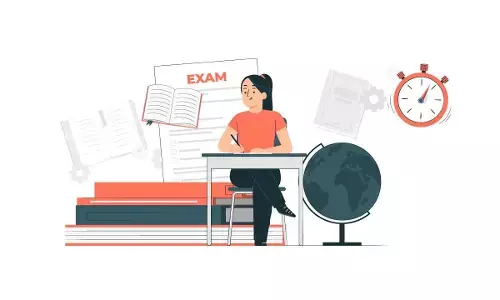Where there is a will there is a way: Teeja Devi

Where There is a Will There is a Way: Teeja Devi. 55 years old Teeja Devi was born in village Bargadavaan in a family of farm labourers. The youngest of 4 siblings, her father died even before she was born. A father less Teeja had a tough childhood.
55 years old Teeja Devi was born in village Bargadavaan in a family of farm labourers. The youngest of 4 siblings, her father died even before she was born. A father less Teeja had a tough childhood. She grew up amid fields, and from early childhood farming became part of her daily life. Teeja studied till class 5 and then was married in a rural household of a nearby village. Teeja reminiscences--“I was too young when I got married-- perhaps a child bride. I have no recollections of my marriage. The only thing I remember is that I was brought in a bullock cart to my in-laws house”.
.jpg)
Life was not easy in her new household either. Her husband was jobless. From doing her daily household chores in a joint family to helping in tilling the land, Teeja performed all her duties with aplomb. There was just 1 bigha of land on which she grew millet, corn, wheat, paddy, and lentils. Farming was next nature to her as she had been involved with it since early childhood. And so was fighting for one’s rights.
But when it came to division of family land, her husband was handed over fallow land, while the other brothers kept the fertile land as well as some prime land near the main road. Teeja blew the bugle of revolt and after many difficulties managed to get the farmland redistributed fairly among the brothers. Later, she also managed to get her husband his rightful share of the prime land, which his brothers were trying to usurp. She now lives in a house built on this land with her husband, son, daughter-in-law and 2 grandchildren.
Although the land, which Teeja tills is in the name of her husband, he dare not sell it against her wishes. “If I want I can get it in my name today. Once he wanted to sell some land. I told him to give half of it to me and then do whatever he wanted with his portion,” she says.
Her achievements as a farmer
Teeja brought about many changes in her farming techniques after she came in contact with GEAG (Gorakhpur Environmental Action Group) and they saw her ability and interest in farming. She was designated a model farmer and also became a member of Aaroh Mahila Kisaan Manch ('Aaroh' is a campaign for rights and recognition of women farmers in Uttar Pradesh supported by Oxfam India). Getting involved with such organisations further helped her develop her potential as a woman farmer leader. Through them she got information about organic pesticides, and organic manure, which she had not known before. She also got trained to make organic manure, pesticides, dyes, and even organic urea with the help of cow dung, cow urine, jaggery and gram flour.
“I am an independent woman farmer. I do not depend upon my husband to help me. I do all the sowing of crops myself. I grow paddy, wheat, mustard, maize, millets, til (sesame) and vegetables on the two and a half bigha (1 bigha= 0.5-0.6 acres) of agricultural land which my husband inherited. I sell my agricultural produce in the nearby market and also in the mandi (main market) in Gorakhpur.”
However things are not always rosy. Like so many other farmers, Teeja also has to contend with vagaries of weather. “This (1st week of October, 2014) was the time to grow green leafy vegetables like spinach and they would have fetched a high price too. But the fields are flooded with rainwater and by the time they are good enough to sow these vegetables the prices would fall. So that is a huge financial loss for us.”
Teeja’s husband (she calls him 'Maalik'—meaning master) has never interfered in his wife’s work. Rather he is very proud of her achievements. He has always co-operated with his wife in all her social work and fight for the rights of the villagers. He, along with other villagers, also encouraged her to fight the elections for the panchayat membership.
Teeja enjoys working for the betterment of her people. She finds meetings and interactions with other people/groups very stimulating—“By talking with others I increase my knowledge and also put forward my views with confidence”. She teaches in the kisan schools of 19 blocks where she trains other women in farming techniques and in making organic manure and pesticides.
Teeja has been an active leader of the Aaroh campaign, which has helped her not only improve her knowledge and understanding but also to mobilize other women farmers. She has always displayed strong leadership qualities and challenged irregularities/corruption rampant in many government departments. Teeja’s life is a veritable treasure of real life personal anecdotes—each one being more inspiring than the other.
Some of her notable achievements:
(i) For the past 25-30 years Teeja has been on the board of members of the gram panchayat (village council). But when she stood for elections for the first time she faced a tough time—“When I went to file my nomination papers I was told that my name was not in the voters’ list. I had been living in the village for so many years and my name was not in the voters’ list! I refused to take this lying low. When the Block Development Officer (BDO) paid no heed to my protestations, I went to the DM’s (district magistrate) office with an application. He was very helpful and got me the Vidhan Sabha elections voters’ list, which obviously had my name. Now the BDO had no option but to accept my papers. But on the election day when I went to cast my vote I was again told that my name was not in the village voters’ list, even though it was on the list given to me by the DM.
When I refused to be cowed down, I was advised to go to the Block Pramukh. It was already 4pm but I went by cycle to the Block Pramukh’s office. The guard said it was impossible to get the village voters list that day. I told him that I was going to appeal to the DM. This created some fear in the people who were sitting there with the guard. Even though they made fun of me when I told them that I was a candidate for member of gram panchayat and my election symbol was ‘chair’, they had to search for the correct voters list, which was eventually found buried under stacks of papers in the room of the BDO. But I knew that by the time I would reach my village it would already be past the voting time of 5pm. So I went to the police station and told them my problem. They sent two policemen with me. Accompanied by the policemen I went to the polling booth.
The same persons who would not allow me to cast my vote earlier in the day stood up with folded hands and let me do the needful. If that day I had behaved as an illiterate and stupid villager I would have lost the battle. I was elected as a member of the panchayat. After that I stood for elections five times and won every time (a member is elected once every 5 years)”.
(ii) There was a chak road of the gram samaj in her village. The gram pradhan (Village Head) of the village was getting some construction done on this land for the pradhan of a nearby village to whom he had probably sold that government land. When Teeja heard about this illegal construction being done (chak road is a public thoroughfare on government land that cannot be sold or used for any construction), she confronted the pradhan and threatened to go to the police station if construction was not stopped. She was told that the area was not marked as a chak road. She went to the Lekhpal in Rustampur who also reiterated the same thing. With her presence of mind, she then asked him to show her the map, even though she knew she could not read it. But this did the trick—the lekhpal was taken aback. He had not expected this from an illiterate person like Teeja. He had to show her the map and accept that it was indeed a chak road. He had no option but to get the construction stopped. In this way Teeja managed to stop illegal usurping of government land.
(iii) “I do have a ration card. But last week we got very poor quality wheat. So I sent a sample of it to the Lekhpal at the tehsil with a written complaint. Although no action has been taken as yet, I will keep on following the case till justice is done”.
(iv) “As a responsible member of the panchayat, it is my duty to work for the wellbeing of the villagers. Some persons were not getting their pension for physically handicapped. I followed up their case at the tehsil level and got them their rightful dues”.
(v) “A government tap was lying defunct and nobody seemed interested in getting it repaired. I got an application signed by all the villagers and sent it to the BDO. The tap was mended within a few days and has become functional once again”.
(vi) “A girl from another village was married to a boy from my village. But after marriage he ill-treated her and would beat her up black and blue. The girl’s parents did not help either. I filed a court case on her behalf. The husband compromised in the court but later threw her out of the house and dragged me to court also. But that did not scare me. I stood my ground. I arranged for a job for the girl as a domestic help. She is now safe and financially secure and is not dependent on others.”
On women’s education, marriage and family planning
Even though she could not go to school beyond class 5, Teeja understands the importance of education. She helped her daughter-in-law complete class 10. She also encouraged her to work and got her the job of an Anganwadi worker. Her granddaughter is a graduate. However, Teeja rightly believes that literacy alone will not help—“Women need to have the drive in them to develop their capabilities. Many of them get so involved with housework that they do not want to learn new things. Unless they do things themselves they will not learn to be independent and develop leadership qualities.”
“I am very much against young girls being married off. No girl should be married before the age of 18 years. I ensured that my granddaughter was married at 23 years of age after completing her graduation.”
“Families should be small. With shrinking agriculture and less food production, it is becoming impossible to feed more mouths. Even if one earns gold, one has to eat to live. So lesser are the mouths to feed the better it would be for everyone”.
On woman empowerment
According to Teeja, “There has been a lot of change in my life since the time I came to this village as a child bride. Women are in a better position today to improve their lives and also to fight for their rights, although I have been doing that from the very beginning. From personal experiences I can say that women have the capacity to fight for their rights. But unless they come out of their houses, meet other people, and voice their opinions, they will not be able to progress. I am just literate enough to sign my name but I am very much aware of my and other people’s rights and am ready to fight for them.”
“Women will have to find time from their household chores to mobilize together for removing social ills like alcoholism, child marriage, illiteracy, and even for ending corruption in governance.”
Shobha Shukla, Citizen News Service - CNS
(This CNS article is part of a soon-to-be-released Oxfam India publication: "The Leader Lies In You - Success stories of women farmers in UP")
- Shared under Creative Commons (CC) Attribution License










